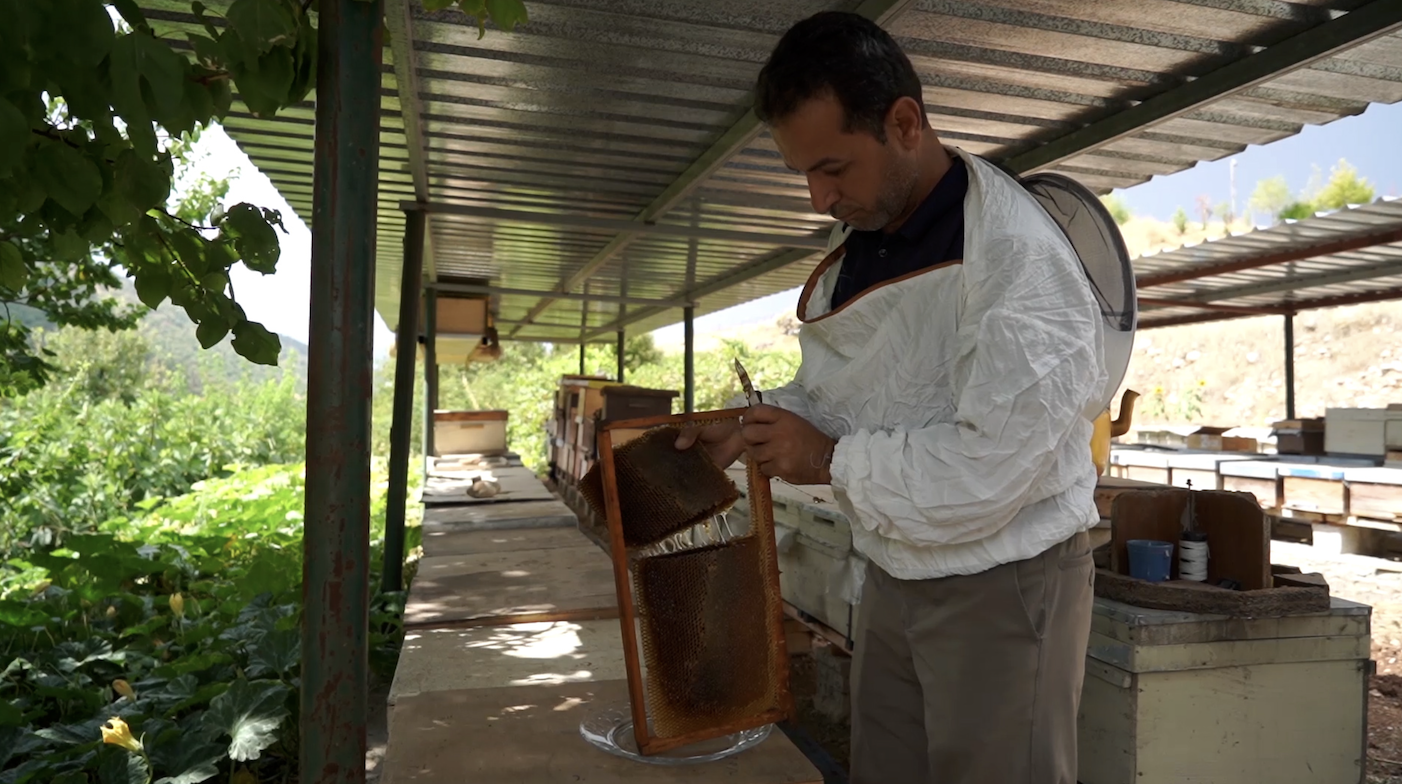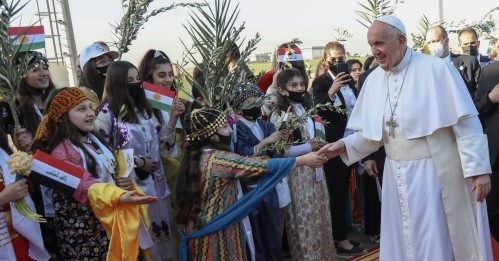A misty shadow casts over daily life in Duhok Governorate in the Kurdistan Region of Iraq, as beekeepers face a silent threat to their livelihood and heritage. In recent years, honey production in the area has witnessed a sharp decline due to the profound impact of the ongoing Turkish military operations against the Kurdistan Workers’ Party (PKK).
Jaafar Ali, a prominent beekeeper in the area, narrates a heartbreaking story of losing the source of his livelihood. “The beehives we used to tend in the areas outside the district center were hit by the bombardment of planes and obliterated. I have lost more than 200 beehives so far, and only 50 remain.” These words sum up the suffering of an entire sector of society, who have been forced to flee their villages on the border in search of safety.

The slopes of Mount Matin house dozens of Turkish military posts, showing the proliferation of the conflict there. Behind this mountain lies Ali’s village as well as many others, now empty as though haunted by ghosts: “We cannot go there because of the bombings,” Ali adds sadly. “We left a large group of beehives in the village, some of which were burned by fire and others destroyed by shelling.”
Official statistics reveal the scale of the tragedy, indicating that 95% of the villages in the twon of Deraluk alone have been forcibly evacuated. This heartbreaking situation extends to most villages in the border areas of Duhok Governorate, where residents have lost their homes, properties, and livelihoods.
Not very long ago, the fertile mountainous areas of Amedi and its surroundings were ideal habitats for beekeeping, producing an abundant supply of high-quality honey. “We were free to move from one place to another,” Ali says. “But now people are forced to leave their villages and move their hives inside residential complexes and closer to their houses.”
The numbers underscore the destruction. According to official statistics, until 2023, Duhok Governorate produced about 350 tons of honey annually. Since then, nearly 50 Kurdish beekeepers have lost their lives, and vast areas of mountain farms have been burned by PKK members, destroying lands that grow the flowers that bees depend on for food.

A tragic testimony
In a scene that reflects the tragedy of war and its repercussions on the lives of civilians, beekeepers in northeastern Duhok find themselves trapped in a life of fear and restrictions, as armed conflicts between the PKK and the Turkish military have turned their lives and livelihoods upside down.
In a special interview with Kurdistan Chronicle, a beekeeper tells his story, preferring to remain anonymous for fear of revenge by PKK members. “Our situation is very bad,” he says with regret. “We cannot take our bees to the places we want, to their natural environment, where there are many flowers and plants.”
“We can’t go there because of the PKK presence,” he explains. “It has been about 10 years since we were banned from entering those areas.”
“Please don’t take any pictures of me,” he adds. “I don’t want the PKK to know that I made a statement against them to any media outlet.” This fear reflects the psychological pressure that locals are under.
“We’re not even allowed to go there,” he says, pointing to a nearby area. “It’s very close, isn’t it? But we can’t go because the Turkish military will target the PKK at any moment, with PKK members hiding in the farms that we have abandoned.”
“The area has become a prison for us, especially in the Amedi area and its two towns, Deraluk and Shiladze. I swear, you could say that we live in a prison here,” he pleads.

According to locals, honey production in Duhok Governorate has halved in the past two years mostly due to the ongoing conflict between Turkiye and the PKK. Beekeepers near Amedi have been forced to move their hives from the mountains to nearby villages, reducing the quality and quantity of their production. This situation threatens not only the honey industry but also the social and economic fabric of local communities.
The slopes of Mount Gara and Mount Matin were once ideal habitats for beekeeping, but the ongoing shelling has forced beekeepers to move to the residential complexes of Shiladze and Deraluk.
Beekeepers face significant challenges as they try to preserve their profession and heritage; the sweet story of their mountain honey has turned bitter due to conflict. This crisis highlights the urgent need for peaceful solutions that ensure the safety of civilians and allow them to freely resume their economic activities.
Riyadh Al-Hamadany is an Iraqi journalist who has worked with numerous local and international media outlets.

